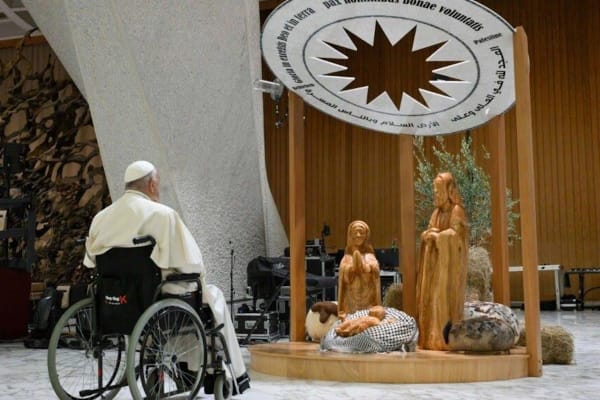Martin Luther regarded the Papacy as the antiChrist


Very interesting reading (opens a pdf document) Nice excursion into Reformation history and doctrine about the papacy formation
Martin Luther and the AntiChrist
https://digitalcommons.andrews.edu › cgi › viewcontent.cgi?article=1087&context=pd
Note that
Perspective Digest is an Adventist publication.
More interesting reading. Others besides Martin Luther regarded the Papacy as the antiChrist
The Story of the Antichrist Pope
For a thousand years the Papacy was identified with the Antichrist. It started with Arnulf of Reims and lasted till the 1900s when other frameworks of prophetic interpretation took over.
For a thousand years the Papacy was identified with the Antichrist. It started with Arnulf of Reims and lasted till the 1900s when other frameworks of prophetic interpretation took over.

www.thecollector.com
Note that
The Collector "is a community for scholars, classrooms, and enthusiasts. We broaden our audience's understanding of the humanities through articles and discoveries from ancient history to the modern era."
I'm not saying the/a Pope is THE antiChrist; however, if he adheres to Catholic doctrine regarding the infallibility of the Pope, the Pope as ruler of not just the Church, but also the whole world, that the Pope is the Vicar of Christ, that no one can be saved outside of the Church (meaning RCC), etc., then by usurping and setting himself up in place of Christ, he mirrors what Scripture says about the antiChrist.
From Martin Luther and antiChrist:
"Meanwhile, replying to Exsurge Domine’s charges in his Defense and Explanation of All the Articles, Luther said, “Beware of the Antichrist, the Pope!” Arguing that Christ was the rock of Matthew 16:18, Luther said that interpreting this text to suggest papal authority perverted God’s Word. This, Luther continued, confirmed Paul’s prediction that antichrist’s entrance would be characterized by deceit and false scriptural interpretation. In this book he also
called the Pope antichrist for giving people false assurance through indulgences, for denying that belief was required for forgiveness of sins, for spreading errors worldwide in exchange for “the wealth of the nations, and for imposing on people a system of ‘contrition, confession, and satisfaction.’”
"Then, addressing Leo, Luther offered to recant if the Pope could prove that he wasn’t condemned by God by Paul’s curse on anyone who changes the ordinance or the gospel. Unless he could prove this, Luther said, the Pope should not take offense when Luther called him the antichrist."
"One of the statements Leo had condemned in Exsurge Domine was, “The burning of heretics is contrary to the will of the Holy Spirit.” Luther responded that papists had burned the “good Christians” John Huss and Jerome of Prague and “the pope and other heresy-hunters have burned other good Christians,” including “the godly man of Florence, . . . Girolomo Savonarola,” thus “fulfilling the prophecy concerning the Antichrist that he will cast Christians into the oven.” In this booklet Luther also condemned “the error about the free will” as “a peculiar teaching of Antichrist” and denounced the creation of mendicant orders as a ruse of the antichrist to increase his own power" (p.8).
"During his protective confinement at Wartburg Castle, he continued to describe the papacy as the antichrist: “St. Paul calls Antichrist the man of sin and the son of perdition, because through his precepts and laws he will turn all the world from God and prevent God and the world from coming together; he shall be a master of sin and all iniquity, and yet will retain the name and appearance of Christ and call himself Sanctimus and Vicarius Dei and Caput Ecclesiae [‘most holy one; vicar of God; head of the Church’], and persecute all who will not obey him. It is easy to recognize that the pope more than fits this description."" (p. 9)
"The chief reason the mature Luther described the Pope as antichrist was because, in Luther’s opinion, he had usurped God’s place as lawmaker, adding his own rules to those in the Bible, burdening consciences with human traditions, and infringing on Christian freedom, declaring as sinful things that Christ
has said are not sinful, including clerical marriage. Indeed, Luther said, the Pope had deposed Scripture and established his own laws, sitting in judgment on God’s Word and making decrees that oppose what Scripture says, nullifying the texts assuring us of forgiveness of sins, distorting Christ’s words, falsely interpreting Scripture, diluting biblical mandates, and giving people a distorted picture of God. Rather than feeding Christ’s sheep,according to Luther, the Pope taught and did the very opposite of Christ’s life and teachings" (p.10).
"Luther charged that one way the Pope usurped God’s place was by teaching that the Scriptures derived their authority from the church rather than vice versa. Another way was by claiming authority not only over the church but over the whole world, judging everyone but not permitting himself to be judged. The Pope’s claim to divine prerogatives had “denied and utterly buried the office and divinity of Christ,” who never “intended the Pope to rule
over the whole world.” He cited both Scripture and history to show that neither Peter nor the bishop of Rome at the time of the Council of Nicea ruled over the whole church.
Excommunicating and persecuting people for following God’s Word was another way the Pope was usurping God’s authority, according to Luther. “The false church is always the persecutor of the true church, not only spiritually . . . but also physically, by means of the sword and tyranny,” he said, declaring that the Bible had foretold that antichrist would “kill those who cling to the Word” (pp. 10-11).












